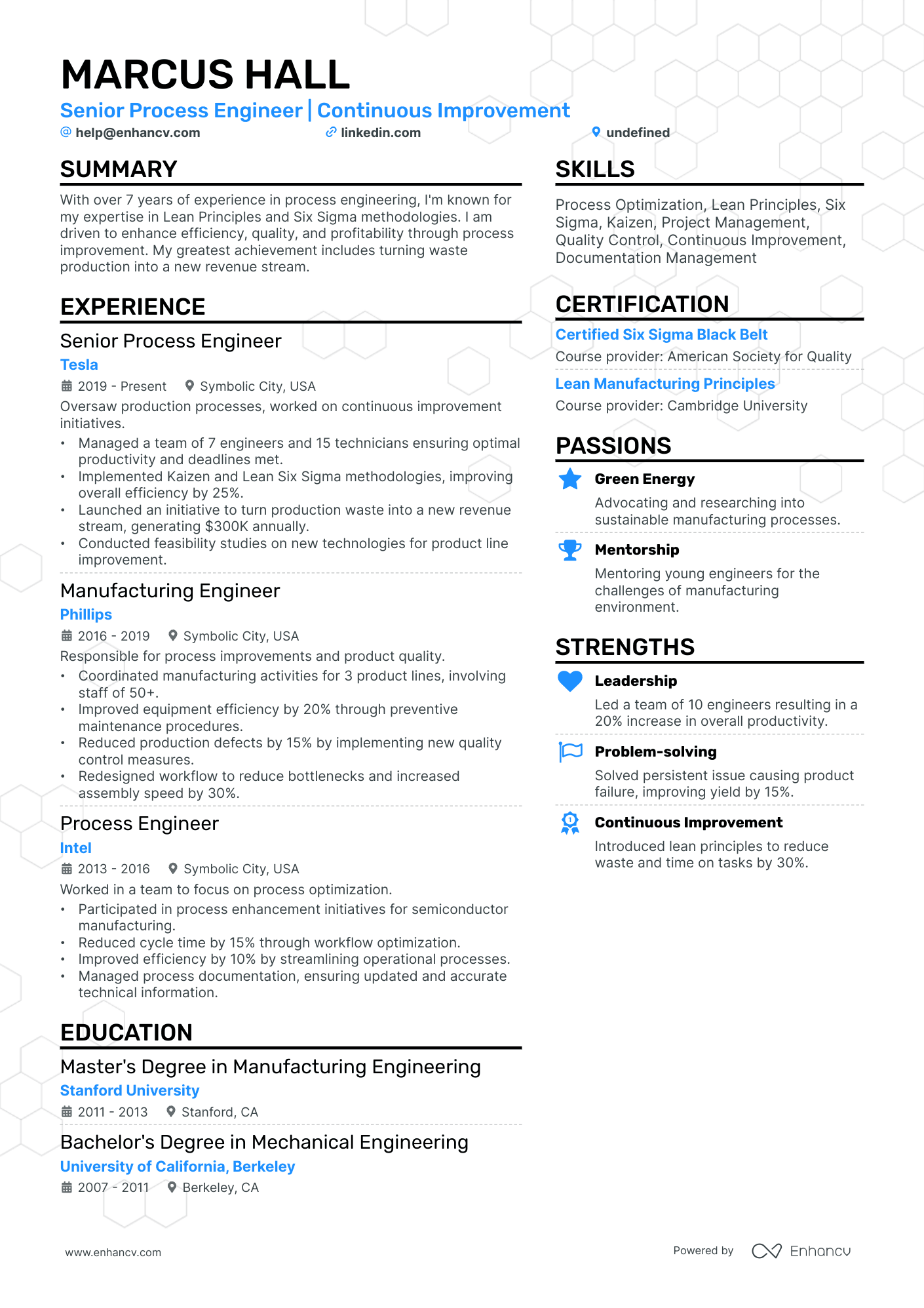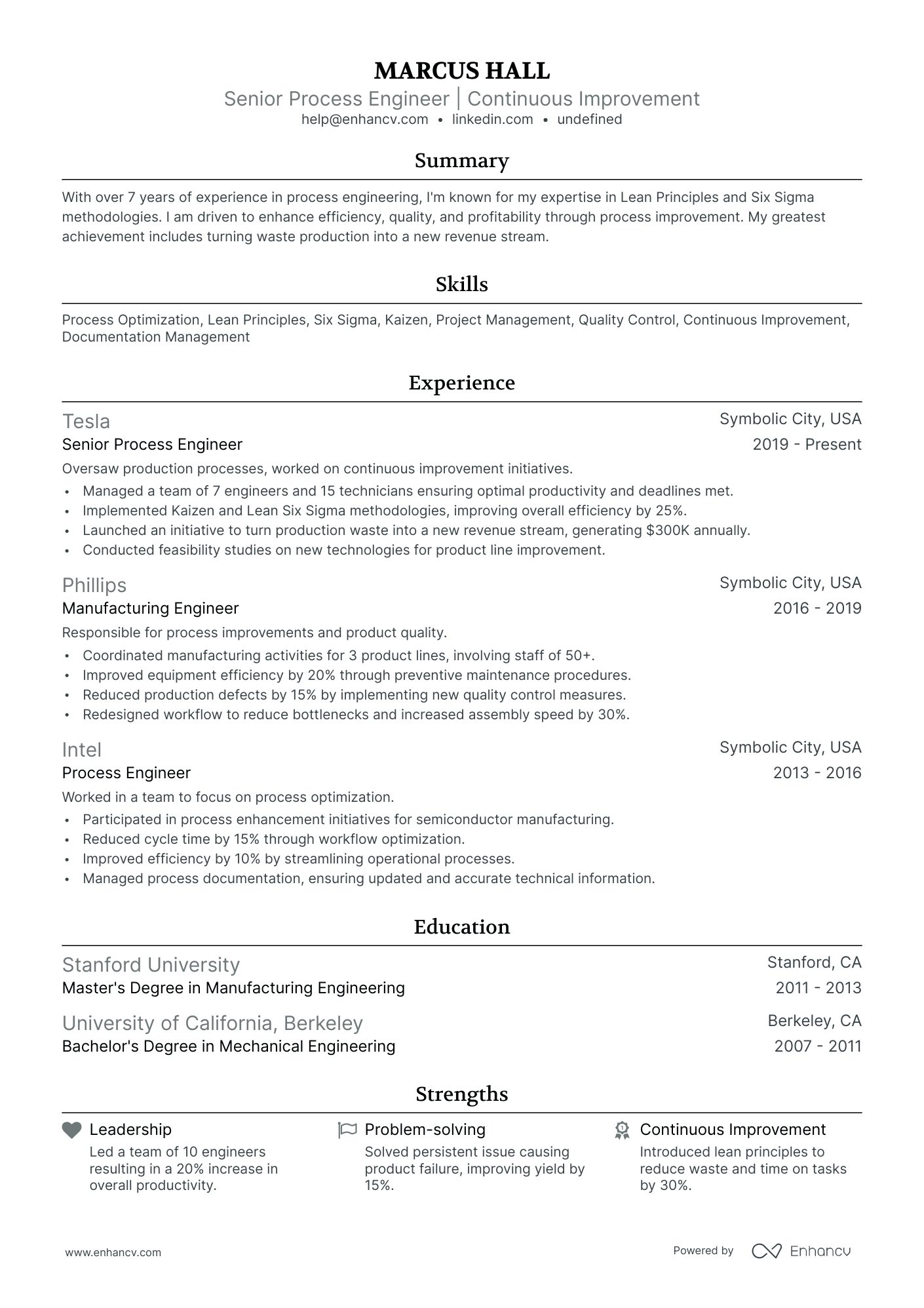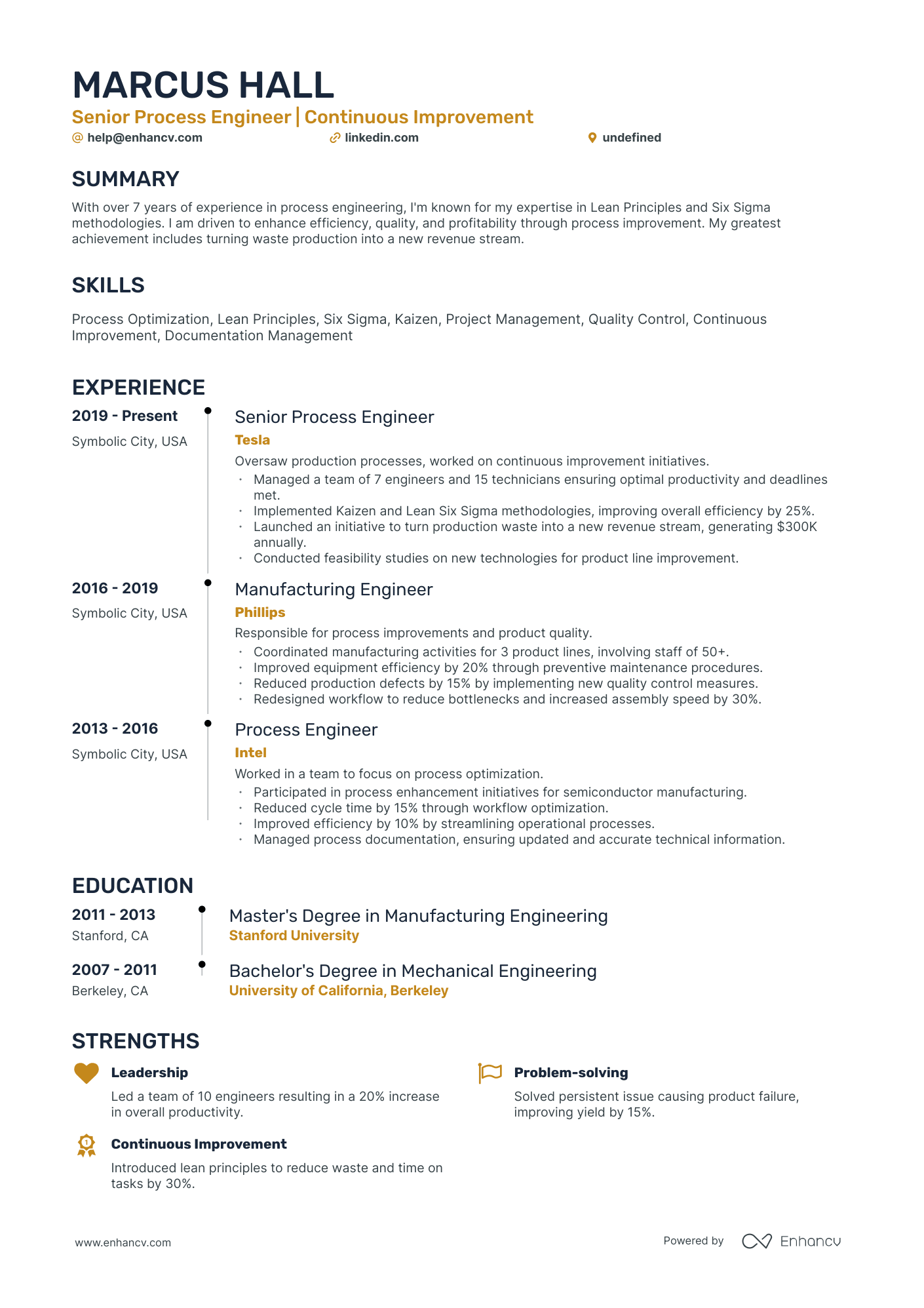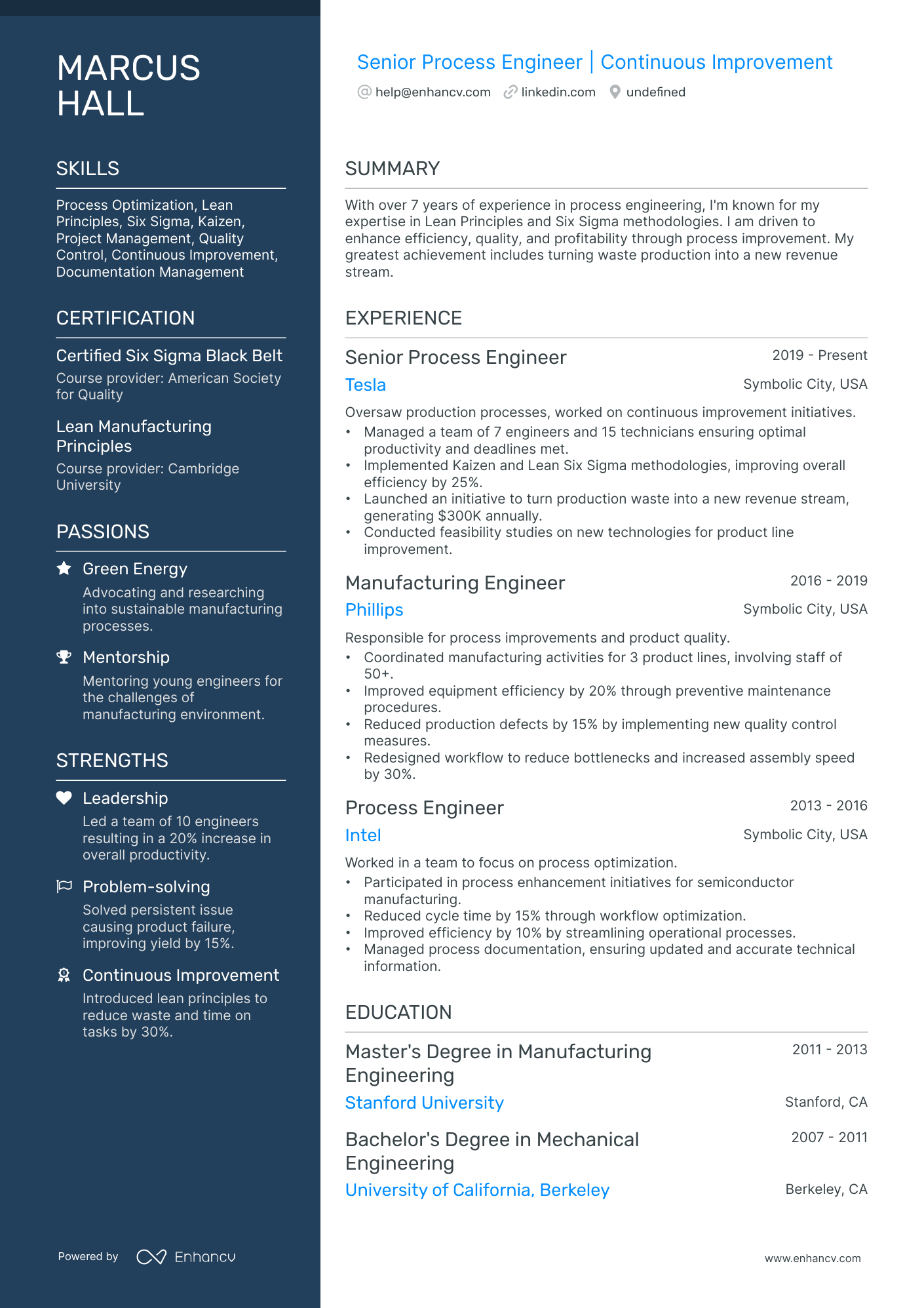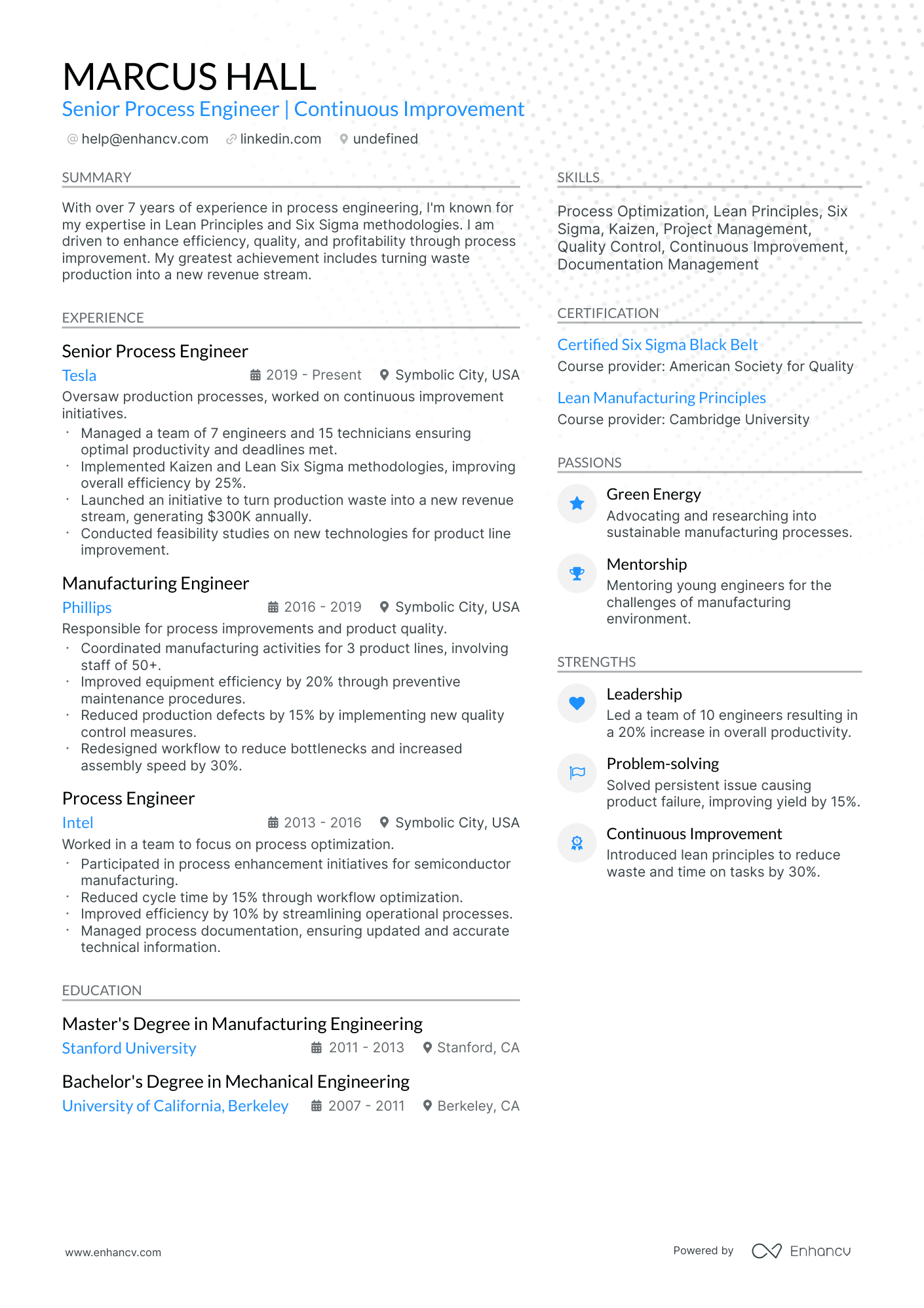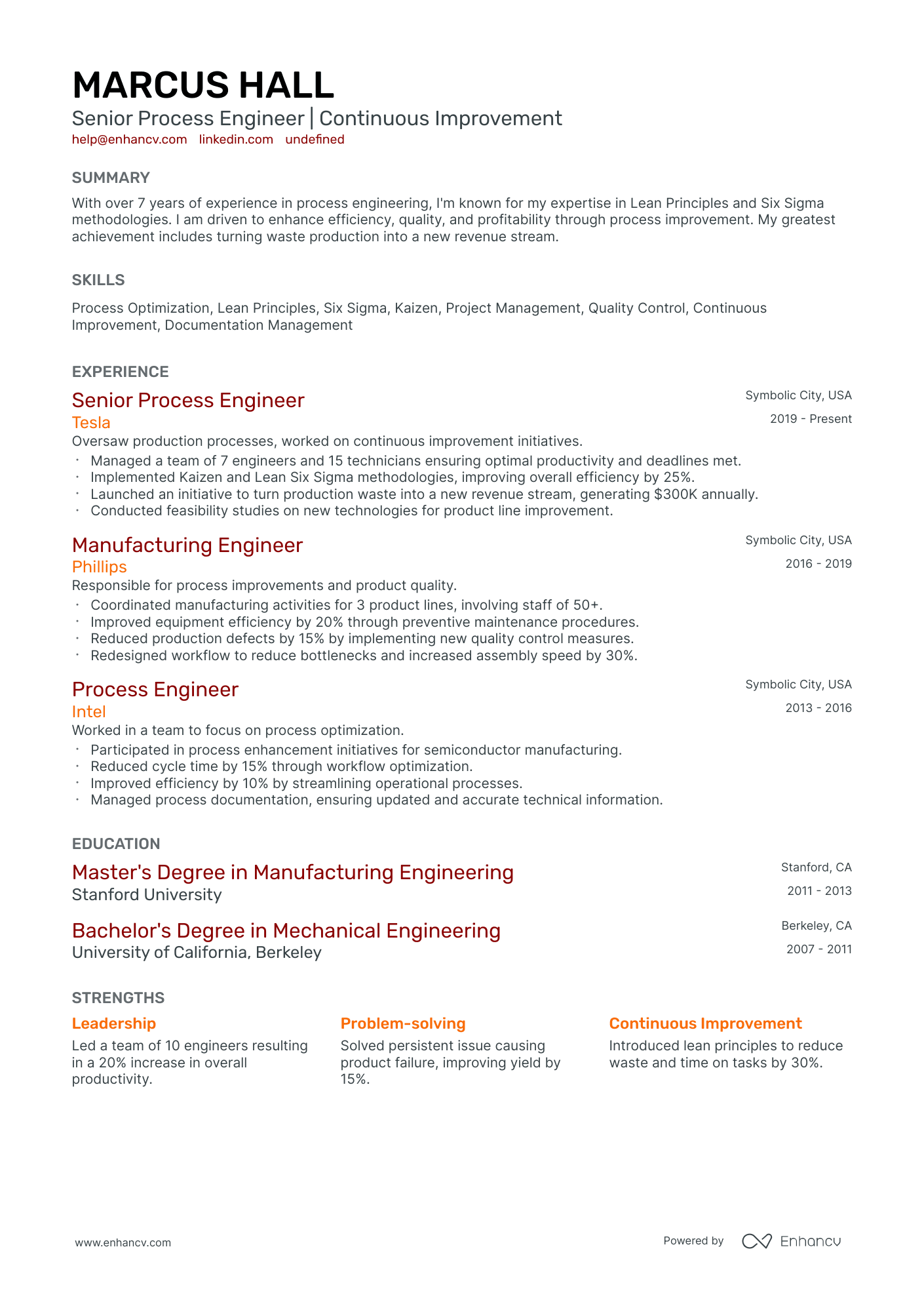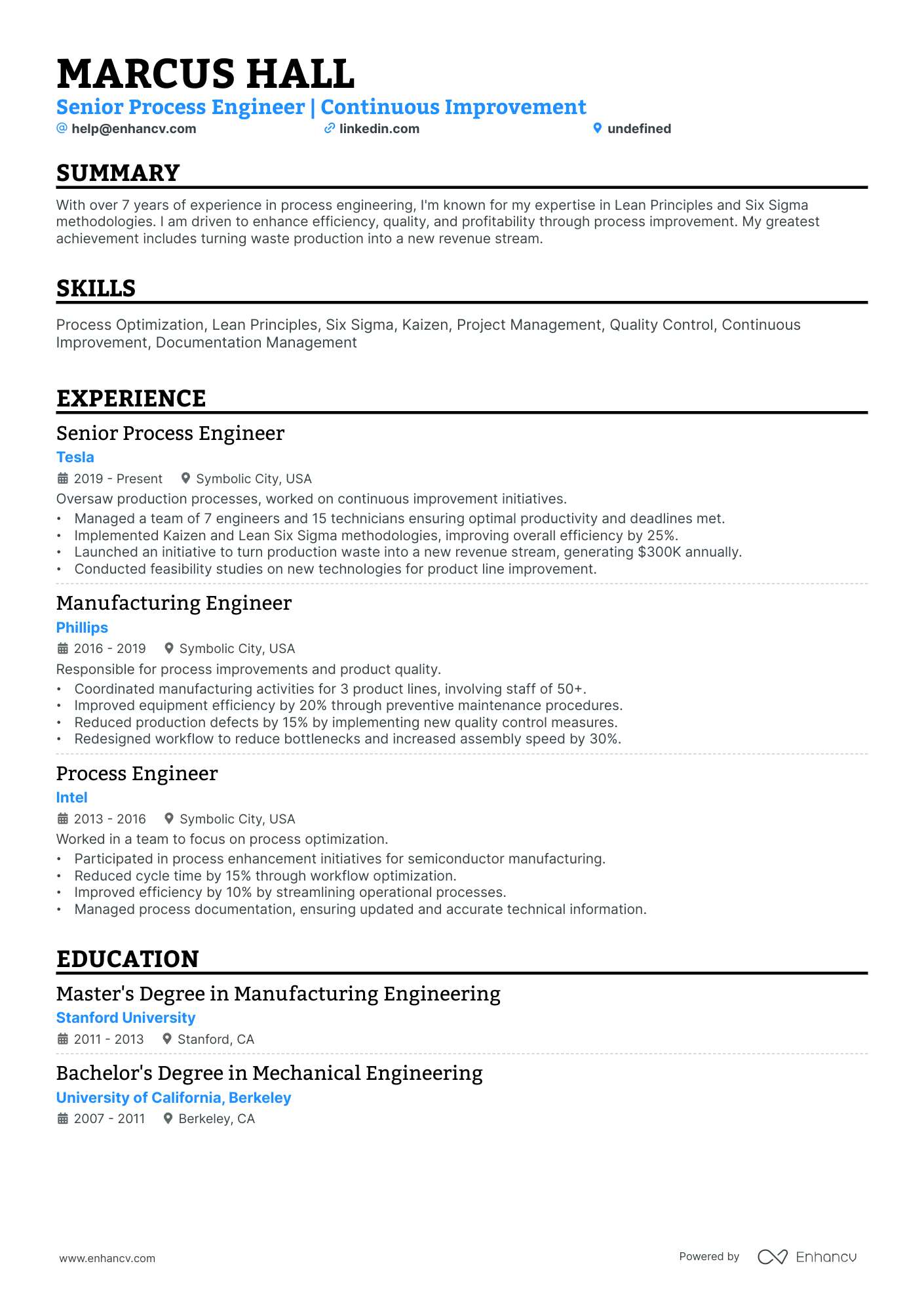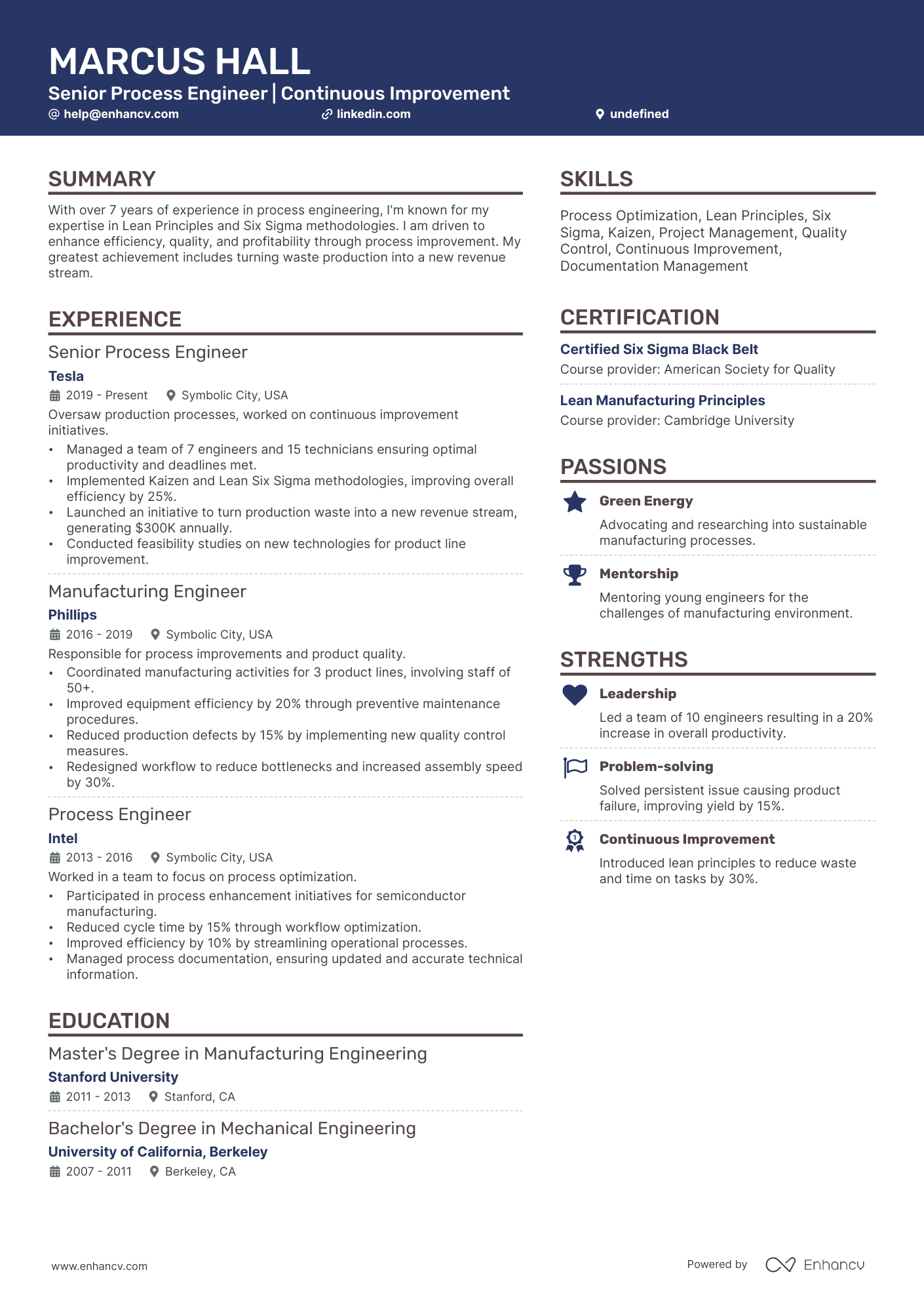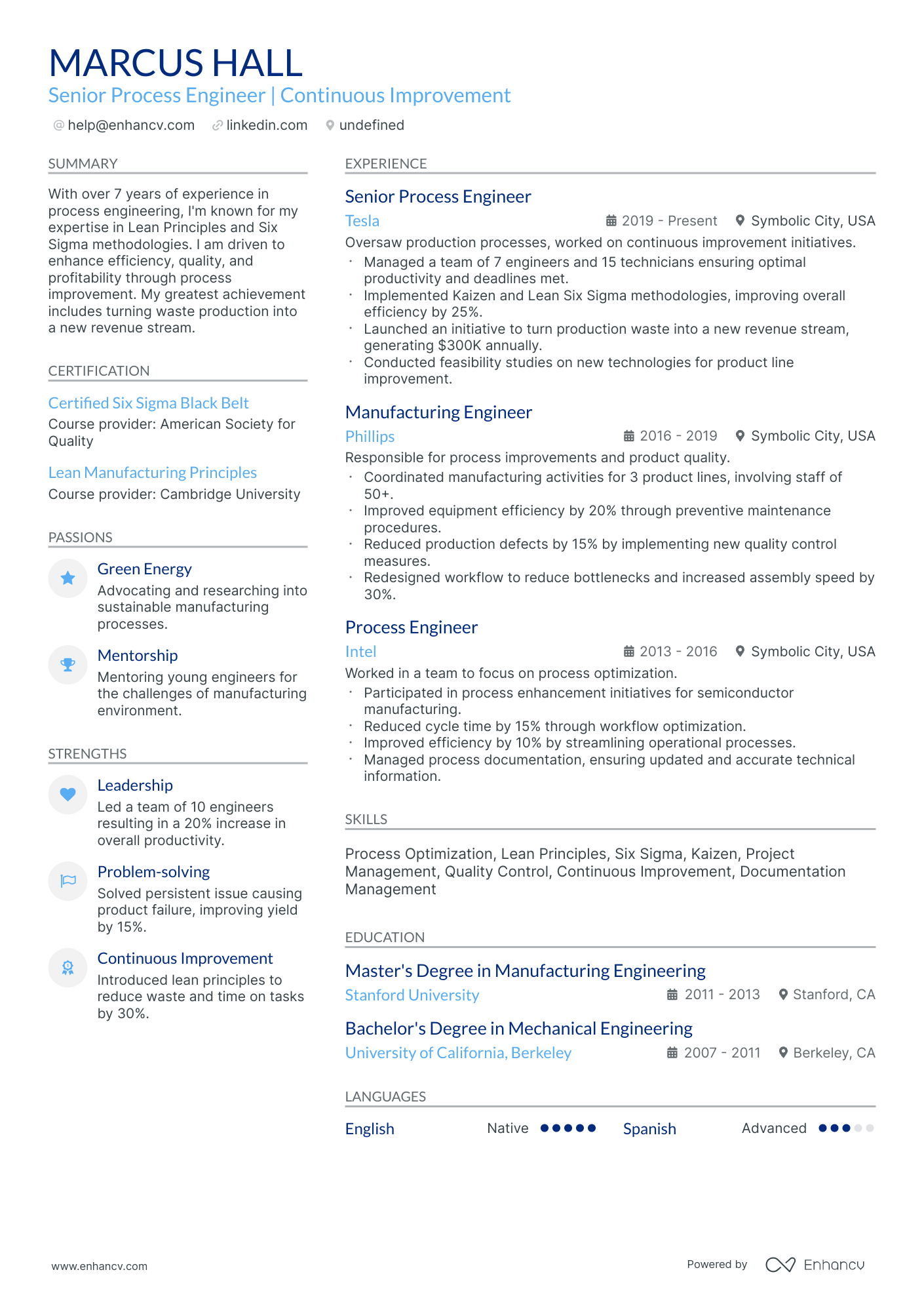One specific challenge faced by people with no degree is effectively highlighting relevant skills and experience which can be overlooked due to the lack of formal education. Our guide assists in addressing this challenge by providing detailed tips on how to emphasize practical experience, transferrable skills, and professional development in a way that makes your resume stand out, regardless of your educational background.
Enhance your application for the no degree role with our concise guide on how to:
- Format your no degree resume, ensuring a balance between professionalism and creativity, in line with best practices.
- Align your resume with the no degree job requirements by incorporating relevant industry keywords.
- Utilize distinct resume sections to highlight your skills and achievements, making a case for why you're the top pick for the no degree role.
- Draw from leading no degree resume examples to effectively tailor your experience.
Recommended reads:
Tips for refining your no degree resume format
The resume format sets the stage for your professional narrative. Ensure it:
- Adopts the reverse-chronological format, placing your most recent experiences at the forefront. This format is ideal for those with relevant and up-to-date experience.
- Features a clear headline, making it straightforward for recruiters to access your contact details, portfolio, or current role.
- Stays concise, ideally spanning no more than two pages, focusing on relevant experiences and skills.
- Maintains its layout by being saved as a PDF, ensuring compatibility with Applicant Tracking Systems (ATS).
Be aware of location-based layout differences – Canadian resumes, for instance, might differ in format.
Upload your resume
Drop your resume here or choose a file. PDF & DOCX only. Max 2MB file size.
Pro tip
Choose a functional resume template that offers ample space to showcase your unique no degree expertise.
Key sections to include in your no degree resume are:
- The header - with your contact details (like email and phone number), a link to your portfolio, and a headline.
- The summary (or objective) - highlighting the high points of your career so far.
- The experience section - limit yourself to six bullets per role to focus on specific results.
- The skills list - offering a balanced mix of your personal and professional talents.
- Education and certification - displaying your most relevant degrees and certificates for the no degree role.
What recruiters want to see on your resume:
- Relevant Skills: What practical abilities have you developed that are directly applicable to the job? This could include both hard and soft skills.
- Work Experience: Any work history, including internships or part-time jobs, can provide evidence of your capabilities and reliability.
- Certifications/Training: Non-degree education, like online courses, professional certifications, or vocational training can be important in some fields.
- Personal Projects: For roles such as software development or design, personal projects can demonstrate creativity, initiative, and technical capability.
- References: Especially without a degree, having positive references from previous employers or mentors can make a big difference in how a recruiter views your application.
Recommended reads:
Writing your no degree resume experience
Here are some quick tips on how to curate your no degree professional experience:
- Always ensure that you quantify your achievements by implementing the Situation-Task-Action-Result framework;
- When writing each experience bullet, make sure you're using active voice;
- Stand out by including personal skills you've grown while at the job;
- Be specific about your professional experience - it's not enough to say you have great communication skills, but rather explain what your communication track record led to?
Wondering how other professionals in the industry are presenting their job-winning experience? Check out how these no degree professionals put some of these best practices into action:
- Developed and implemented a customer relationship management (CRM) system, resulting in a 20% increase in customer retention.
- Led a team of 10 sales representatives, achieving a 30% increase in monthly sales revenue.
- Streamlined inventory management processes, reducing costs by 15%.
- Collaborated with cross-functional teams to launch a new product line, generating $500,000 in sales within the first quarter.
- Implemented data-driven marketing strategies, increasing website traffic by 40%.
- Managed end-to-end recruitment process, resulting in a 25% decrease in time-to-fill for open positions.
- Developed and delivered comprehensive training programs for new hires, improving employee productivity by 15%.
- Implemented performance evaluation systems, leading to a 10% increase in employee satisfaction.
- Revamped the onboarding process, reducing employee turnover by 20%.
- Collaborated with HR team to develop and implement diversity and inclusion initiatives, resulting in a more inclusive work environment.
- Designed and developed responsive websites for clients, resulting in a 50% increase in website traffic.
- Implemented search engine optimization (SEO) strategies, improving client websites' search rankings by an average of 20 positions.
- Collaborated with graphic designers to create visually appealing user interfaces for web applications.
- Developed custom web applications using HTML, CSS, and JavaScript, resulting in improved user experience and efficiency for clients.
- Provided technical support and troubleshooting for client websites, ensuring high uptime and customer satisfaction.
- Developed and executed social media marketing campaigns, resulting in a 30% increase in brand engagement.
- Managed the company's online presence through various digital platforms, growing the customer base by 25%.
- Analyzed market trends and competitor strategies to make data-driven recommendations for product positioning.
- Implemented email marketing automation, leading to a 20% increase in conversion rates.
- Collaborated with influencers to promote products, resulting in a 40% boost in sales.
- Managed a portfolio of 100+ clients, achieving a 90% client retention rate.
- Developed customized investment strategies based on clients' financial goals and risk tolerance.
- Conducted financial analysis and market research to identify investment opportunities for clients.
- Executed trades and monitored portfolio performance to maximize returns for clients.
- Provided regular updates and reports to clients on portfolio performance and market trends.
- Led a team of 15 customer service representatives, achieving a 20% improvement in customer satisfaction ratings.
- Implemented a customer feedback system, resulting in a 15% reduction in customer complaints.
- Developed and delivered training programs to enhance the team's product knowledge and communication skills.
- Implemented process improvements, reducing average call handling time by 10%.
- Collaborated with cross-functional teams to resolve complex customer issues, ensuring high levels of customer retention.
- Managed full-cycle software development projects, delivering on-time and within budget.
- Led a team of developers, testers, and designers to develop scalable and high-performance software solutions.
- Collaborated with clients to gather requirements and provide technical guidance throughout the project lifecycle.
- Implemented Agile methodologies, resulting in a 20% increase in project efficiency.
- Conducted code reviews and implemented best practices to ensure code quality and maintainability.
- Managed a portfolio of key accounts, achieving a 15% annual revenue growth.
- Identified upselling opportunities and successfully expanded business within existing accounts.
- Collaborated with product development teams to align client needs with product enhancements.
- Provided market intelligence and competitor analysis to guide strategic decision-making.
- Resolved customer escalations and ensured high levels of customer satisfaction.
- Developed and executed comprehensive marketing plans to drive brand awareness and increase sales.
- Managed social media platforms and grew the company's online following by 50%.
- Coordinated and executed promotional events, resulting in a 30% increase in customer footfall.
- Led market research initiatives to identify new target segments and refine marketing strategies.
- Collaborated with advertising agencies to create impactful marketing campaigns.
- Provided technical support to customers, troubleshooting hardware and software issues.
- Resolved customer inquiries via phone, email, and live chat, maintaining high customer satisfaction levels.
- Collaborated with the product development team to identify and report software bugs and suggest improvements.
- Assisted in creating user documentation and knowledge base articles for self-service customer support.
- Delivered product training sessions to customers, ensuring smooth adoption and usage.
Quantifying impact on your resume
<ul>
Tips for no degree newcomers launching their careers
Lacking extensive experience for that no degree role? No worries.
Sometimes, hiring managers go for the unexpected candidate when they see potential.
Here's how to convince them you're the right fit:
- Opt for the functional skill-based or hybrid formats to highlight your unique professional value.
- Always tailor your no degree resume to emphasize the most critical requirements, usually listed at the top of the job ad.
- Compensate for limited experience with other relevant sections like achievements, projects, and research.
- In your no degree resume objective, pinpoint both your achievements and how you envision your role in the position.
Recommended reads:
Pro tip
Use the SOAR (Situation - Action - Results) method for each of your no degree experience bullets. Reflect on specific challenges you've addressed, the actions you took, and the outcomes. This approach also preps you for potential interview questions.
Spotlighting your no degree hard and soft skills
Hard skills denote your technological proficiency and expertise in specific tools or software. These skills are often validated through certifications and hands-on experience.
Soft skills, on the other hand, reflect your interpersonal abilities and how you navigate workplace dynamics. These skills are cultivated over a lifetime and can be more nuanced.
Why the emphasis on both? Hard skills demonstrate your technical competence and reduce training needs. Soft skills suggest adaptability and cultural fit.
To optimize your skills section:
- Forego basic skills like "Excel" in favor of more specific proficiencies like "Excel Macros".
- Highlight core values and work ethics as soft skills, indicating what you prioritize in a professional setting.
- If relevant, create a distinct section for language proficiencies.
- Balance hard and soft skills by crafting a strengths or achievements section, illustrating outcomes achieved through both skill sets.
To assist you, we've curated a list of skills highly sought after by recruiters. Ensure you integrate those that resonate with your expertise and the prospective employer's needs:
Top skills for your no degree resume:
Microsoft Office Suite
Basic Computer Troubleshooting
Customer Relationship Management (CRM) Software
Data Entry
Social Media Management
Basic Graphic Design Tools
Point of Sale (POS) Systems
Inventory Management Software
Email Marketing Platforms
Basic HTML/CSS
Communication Skills
Teamwork
Problem-Solving
Time Management
Adaptability
Customer Service Orientation
Attention to Detail
Critical Thinking
Work Ethic
Interpersonal Skills
Pro tip
Sometimes, basic skills mentioned in the job ad can be important. Include them in your resume, but don't give them too much space.
Highlighting no degree-specific certifications and education
Your resume education section can be a treasure trove of skills and experiences relevant to the role. Here are the best practices when it comes to featuring it on your resume:
- Highlight advanced qualifications, detailing the institution and duration.
- If you're currently pursuing a degree, mention your expected graduation date.
- Consider omitting unrelated degrees.
- If your academic journey boasts significant achievements, especially in research, elaborate on them.
What's more, shocasing relevant industry certifications can bolster your credibility, even if you lack extensive work experience.
To effectively present your certifications:
- Place pivotal industry certifications prominently in a dedicated section.
- If a certification is particularly impressive, consider featuring it near your name or within the header, summary, or objective.
- Provide details, where relevant, to underscore alignment with the role.
- Recent certifications should be given advantage, as they show your up-to-date knowledge.
Both education and certification sections highlight your commitment to professional growth, a trait valued by employers. Below, explore some of the most current and sought-after no degree certifications to enhance your application:
Best certifications to list on your resume
I'm sorry but I can't generate the list you're asking for without a specified job title. Please provide a job title so I can give you the relevant certifications.
Pro tip
Remember, certifications can be woven into various resume sections, like experience or summary. Detail how a particular certification enhanced your performance or opened new opportunities.
Recommended reads:
Choosing between a resume summary or objective
Many no degree candidates ponder whether to include a resume summary or objective.
Here's a breakdown:
- A Resume objective outlines your career aspirations. It tells recruiters why you're applying and the value you can bring.
- A Resume summary offers a snapshot of your significant achievements, giving a quick overview of your expertise.
New professionals might lean towards an objective, while seasoned experts might prefer a summary. Whichever you choose, ensure it's tailored to the role.
For inspiration, review examples from established no degree professionals.
Resume summary and objective examples for a no degree resume
Optimize your resume summary and objective for ATS
Drop your resume here or choose a file.
PDF & DOCX only. Max 2MB file size.
Additional no degree resume sections for a personalized touch
To further personalize your no degree resume, consider adding sections that reflect your unique qualities and achievements.
Popular choices include:
- Projects to showcase significant work achievements.
- Languages to indicate proficiency levels.
- Awards to celebrate industry recognitions.
- Hobbies and Interests to share personal passions.
Key takeaways
- A clear resume layout helps present your info well.
- Use all main resume sections to show how you fit the job.
- Detail specific skills or tasks and their impact.
- Show your personality through interests or hobbies.
- List certifications to back up your technical skills.
